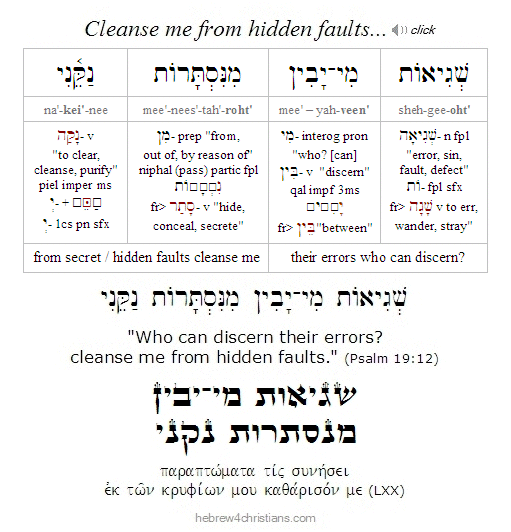|
September 2023 Updates (continued)
Note: Please refresh the page (or press F5) to see the latest updates...
Essential Healing...

09.05.23 (Elul 19, 5783) The biblical Hebrew word for healing is refuah (רְפוּאָה), from the root rapha (רָפָא), meaning to repair, restore, or make healthful. Some of the sages have said that the root letters indicate the meaning or essence of healing itself, namely, confessing the truth of God. This can be seen when we consider that the letter Resh (ר) refers to the head (i.e., rosh: ראשׁ), or that which is first -- suggesting that thinking and exercising the will to do teshuvah (Psalm 90:2-3) is primary; the letter Pey (פּ) refers to the mouth (i.e., peh: פֶּה), that is, to speech, confession, and therefore to prayer; and the letter Aleph (א) refers to faith in the LORD (i.e., ehyeh: אֶהְיֶה), the One and only true God who is the Master of the universe (Exod. 3:14).
So the Hebrew word for healing is connected first with changing our thinking by turning to God, confessing our sin, and trusting the LORD for life, as it says, "confess your sins to one another and pray for one another, that you may be healed" (James 5:16), and "I considered my ways, and turned my feet unto Thy testimonies" (Psalm 119:56). Refuah shleimah (רְפוּאָה שְׁלֵמָה), or a complete healing, is ultimately found when we turn to God with all our hearts and find shalom (שָׁלוֹם), as it says, "the Torah of the LORD is perfect, returning the soul" (Psalm 19:7). The Hebrew word for sickness (i.e., choleh: חוֹלֶה), on the other hand, comes from a root (חלה) that stands for blocked (חָסום) or profane (חל) learning (לִמוּד) regarding matters of the Holy Spirit (ה). The LORD comes to seek and to save those who are lost, saying "I am your Healer" (אֲנִי יְהוָה רפְאֶךָ). Therefore confess your confidence that he forgives all your iniquities and heals everything that blocks you from his blessing. Amen.
Hebrew Lesson
Psalm 103:3 reading (click):
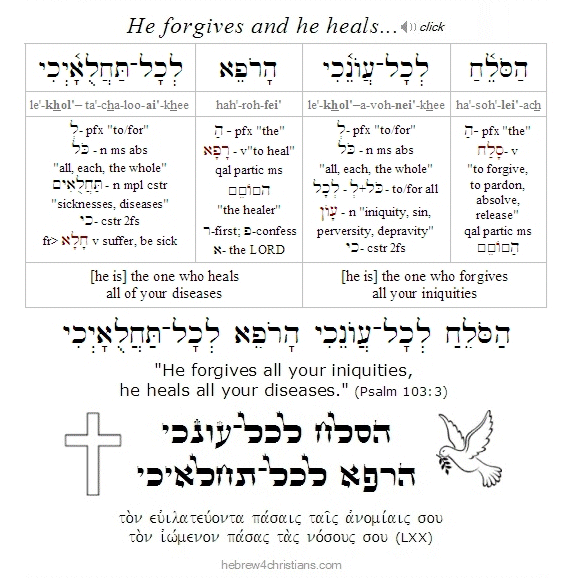 |
Healing from hidden faults...
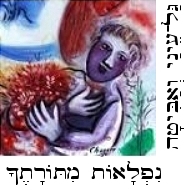
09.05.23 (Elul 19, 5783) All of us have unhealed parts, "hidden faults" (נסתרות) of which we are not fully aware. "Blind spots." Therefore king David prayed, "Who can discern his errors? cleanse me from secret faults" (Psalm 19:12). We are cleansed by confession (וִדוּי), that is, by looking within our hearts to uncover deeper motivations... If we are honest with ourselves we may discover, for example, that we are angry or fearful people, despite how we otherwise wish to regard ourselves. If you find yourself unable to let something go, for instance, some pain or failure of the past, remind yourself that you must do so if you want to move on with your life. Focusing on how things could have been different is to be enslaved to the past. The goal of teshuvah (repentance) is to turn us back to God for life, but to do this, we must be be willing to let go of what makes us sick.
Note that the Hebrew word translated "errors" (i.e., שְׁגִיאוֹת) comes from a root word (שָׁגָה) that means to wander, stray, or transgress. The question raised by David is rhetorical: "Who can discern his errors?" No one – apart from divine intervention... David asked to be cleansed from his "secret faults," which are not those that were performed by him "in secret," but rather those that were unknown, unseen, and unconscious to his own sense of awareness. These are "mindless" sins, unthinking offenses, hidden dispositions, character defects and actions that a person unwittingly performs, perhaps because of deep forces of which he was oblivious. These are the "secret sins" set in the light of God's face (Psalm 90:8); the "sluggish darkness" of the human heart that leads to death and ruin: "The heart is deceitful above all things, and incurably sick; who can understand it?" (Jer. 17:9). How many of us, after all, are fully aware of what we are doing when we are doing something? How many of us are completely transparent both to ourselves and before God, with no unclear motives, etc.? We must always be vigilant... There is always the force of habit, or the subconscious desires or conflicts of the inner life, that work on us, not to mention the trauma of our past and the present devices from the enemy of our souls. May the LORD give us the willingness to be healed, even if there are parts of ourselves that seem to resist that healing. Amen.
Hebrew Lesson
Psalm 19:12 reading (click):
Torah of Death and Life...
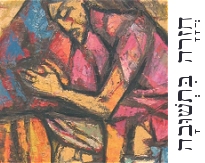
[ Torah explains that death was "inherited" from the rebellion of Adam, who represented humanity as its federal head, and that deliverance from death is given in Yeshua, the "Second Adam" who bore our curse on the cross and restored our lost estate by his resurrection. ]
09.04.23 (Elul 18, 5783) Why does God want us to face the truth about death? Why does Moses ask God to teach us to "number of our days?" (Psalm 90:12). The reason is that by nature people deny the reality of death - they hide their eyes from it, ignore it, and pretend it's not there - so they can continue to live under the illusion that they are in control of their lives, that they are the center, that they are immortal little "gods." Death threatens the ego and humbles us to confess the truth about life, namely that we are not in control, that we cannot choose to be immortals, that we do not have power to exist in ourselves, and therefore we need life from a radically different source - spiritual life - wherein we receive a new identity and a new being found in relationship with God.
The "natural man" regards death as an offense or as "absurd" because it splits us in two, creating a "divided house" that cannot stand. The ego demands to be godlike, important, valued as sacred, etc., yet the prospect of death crushes the aspiration and yields alienation from reality. This creates a painful tension or dualism within the heart where the meaning and purpose of life is lost.... The message of the gospel begins precisely there, however, speaking to broken people who thirst for life but find themselves living on "death row" - people who are humbled and who understand they cannot heal themselves from the "sickness unto death," as Kierkegaard used the term. The remedy is not to deny death or to live as if death is not a genuine horror, but to understand it as our natural estate, brought about by sin that exalts the ego over the God who made us.
The power of the gospel is to partake in a new source of life and to be healed from the sickness of death by God's miracle in Messiah (2 Cor. 5:17). "Jesus saves" is not a cliché for the faith but the sober truth of reality. It is by our union or identification with Him, by the agency of the Holy Spirit, that we are imparted new existence, true spiritual being, that is not subject to the natural law of sin and death (Col. 3:9-11). Being "in Messiah" means you are "justified," that is, welcomed, affirmed, accepted and declared righteous by God, and that you are set free from the condition of "being unto death." You partake and share in the life (relationship) of God based on his redeeming love: you are "adopted" by God, made a member of his "household," and attain the inheritance of which is eternal life. Consequently you cry out "Abba, Father" to God who watches over you and leads you through the days of your sojourn here on earth (Rom. 3:32). Despite walking through the shadowy byways and tribulations of this world, you refuse to let death define you or be the last word: you trust that your Father is with you, working all things for your ultimate good (Rom. 8:28). You know who you are, where you are going, and what your end is because of Yeshua our Lord.
Facing death is essential because the message of the gospel must be grounded and framed in the language of our wretched desperation as lost souls in this world (Rom. 7:24). Death is the central problem of existence, and death is therefore serves as the "propaedeutic" that leads us to the salvation found in Yeshua the Messiah...
The dualism of life shows up within our hearts as well, as we wrestle with our own faith and with "double-mindedness," that is, the ambivalence that results from not having our minds entirely made up. On the one hand, we need to confess the truth of our radical sinfulness, our depravity, our brokenness, our legacy from Adam, and so on, while on the other we must learn to know ourselves as the "beloved" and to find faith that God's blessing indeed belongs to us -- that Yeshua now represents us and gave his life for us -- despite ourselves. We have to be willing to take God's new name for us and believe that God has transformed our ultimate nature for eternal good. We have to be renamed from "Jacob" to "Israel," even as we yet know ourselves as both... In other words, we must learn to "put on" the new nature and to "put off" the carnal reasoning of our former life. The answer for us is found in the word "miracle," as God in great mercy and compassion regenerates us, comforts us, and then guides our way back to the truth of his salvation.
Hebrew Lesson
Psalm 90:3 reading (click):
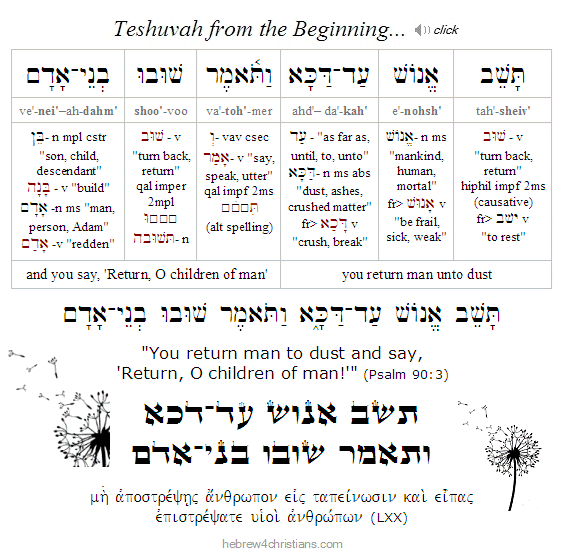 |
Endurance and Healing...

09.04.23 (Elul 18, 5783) Though our promised healing assuredly will come to us, it remains the exclusive prerogative of God to allow trials in our lives for our ultimate good. Therefore faith is the key here: Steadfastly affirm your healing even in the midst of your anguish, because your suffering is a test designed to teach you to trust God and to receive the blessing apart from any empirical evidence (2 Cor. 4:18). As the Torah declares of our father Abraham: והאמן בּיהוה ויּחשׁבה לו צדקה -- "And he believed in the LORD, and He counted it to him for righteousness" (Gen. 15:6); and also of Job's faith in the midst of his agonizing struggle: הֵן יִקְטְלֵנִי לוֹ אֲיַחֵל -- "Though he slay me, I will hope in him" (Job 13:15).
Sometimes all we can do is cry out to the LORD for deliverance... Our heart's cry does not question God's goodness to us, though we may silently wonder about the extent to which affliction may be required to mend our hearts. As C.S. Lewis once said, "We are not necessarily doubting that God will do the best for us; we are wondering how painful the best will turn out to be" (Letters of C.S. Lewis, 1964). There is a trust issue in suffering, and an intimacy that comes through its fires. Do not jump to conclusions; resist any insinuation that the Lord is being unjust! As Kierkegaard reminds us, "It is one thing to conquer in the hardship, to overcome the hardship as one overcomes an enemy, while continuing in the idea that the hardship is one's enemy; but it is more than conquering to believe that the hardship is one's friend, that it is not the opposition but the road, is not what obstructs but what develops, is not what disheartens but ennobles" (Four Upbuilding Discourses, 1844).
The difficulty of ongoing personal suffering is deeply existential: how do you keep hope in the midst of this tension? "Lord I believe; help my unbelief" (Mark 9:24). How do you affirm that your heavenly Father will heal you but at the present hour you must continue to endure suffering? Do you then devise a "soul-building theodicy" to explain your struggle – providing a narrative to answer the "why" of your suffering -- or do you attempt to sanctify suffering as a means of healing others by the grace of the Messiah (Col. 1:24)?
When Yeshua victoriously proclaimed, "It is finished" just before he died on the cross, he foreknew that his followers would experience a "purging process," a "refining fire," and time on the "potter's wheel" to perfect their sanctification. At the cross of Yeshua death itself was overcome – and all that it implies – and yet it is nevertheless true that we will suffer and die ourselves and that death persists an enemy (see 1 Cor. 15:26). While we celebrate the reality of the final redemption, the "instrumentality of our sanctification" needs to be willingly accepted and endured. I say "endured" here because I don't think we will ever have a complete answer to the question of "why" we undergo the various tests we face in this life. Our disposition in the midst of seemingly unanswered prayers is where our faith is disclosed: will we despair of all temporal hope or not? Will we console ourselves with the vision of a future without tears and loss - a heaven prepared for us -- or will we resist the present darkness and seek to find deliverance in this hour? Do we trust God with our pain and submit to his will, or will we "die" inside – losing hope and despairing of all remedy?
As King David once wrote, "At an acceptable time, O God, in the abundance of your steadfast love answer me in your saving faithfulness. Deliver me from sinking in the mire; let me be delivered from my enemies and from the deep waters. Let not the flood sweep over me, or the deep swallow me up, or the pit close its mouth over me. Answer me, O LORD, for your compassion is life; in the abundance of your mercies turn to me" (Psalm 69:13-16).
ענני יהוה כי־טוב חסדך
כרב רחמיך פנה אלי
a·nei'·nee · Adonai · kee-tohv · chas·de'·kha
ke·rohv · ra·cha·mey'·kha · pe·neih · ei·lai

"Answer me, O LORD, for your compassion is life;
in the abundance of your mercy turn to me."
(Psalm 69:16)

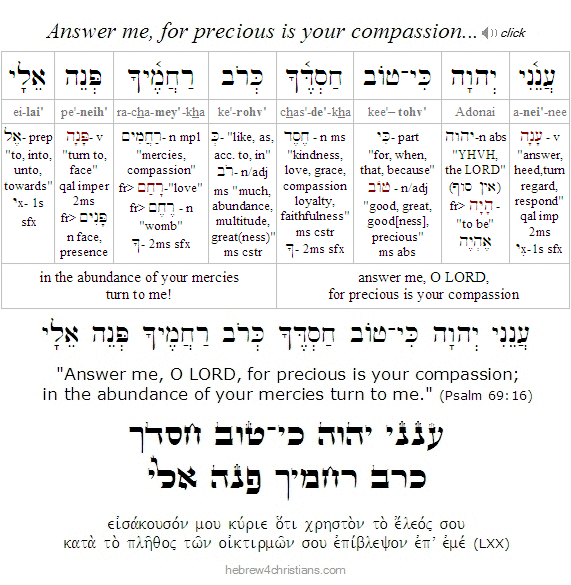
"But You, O GOD my Lord, do Thou for me for your own Name's sake; because your steadfast love is good, deliver me" (Psalm 109:21). "Do thou for me" is the confession that God alone has the power to help. Asking God to bring glory to His own Name -- to honor and magnify His Name -- is the theme of all true intercession.
Suffering has a way of focusing the heart and mind, reminding us that "today is the tomorrow of yesterday." Life is short, and our need is great to turn to the LORD and take hold His promises. We take comfort that God is for us the God of salvation: "Blessed be the Lord, who daily bears us up; God is for us our salvation. Selah. Our God is a God of salvation (יְשׁוּעָה), and to GOD, the Lord, belong deliverances from death" (Psalm 68:19-20).
Be encouraged, brothers and sisters in the Lord. All those who are "fathered by God" conquer the world, since God imparts to us the victory of faith by means of His powerful Spirit (1 John 5:4). Therefore the heart of faith steadfastly affirms, "In all these things [afflictions, tribulations, etc.] we are 'more than conquerors' (lit., "hyper-conquerors," i.e., ὑπερνικῶμενfromὑπέρ, "hyper" + νικάω, "to overcome") through Him that loved us (Rom. 8:37).
 |
Repentance and Paradox...
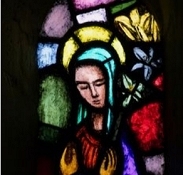
[ The following is related to the month of Elul and the "Season of Repentance"... ]
09.04.23 (Elul 18, 5783) To be a human being is a paradox, caught between the realms of the infinite and nothingness; a union of endless possibility yet terminating limitation. Man desires to live forever but is conscious that one day he will die. He is an incongruity - a mix of flesh and spirit, saint and sinner, good and evil, angel and animal... A spirituality that demands for us to be always happy, always "up," is therefore dishonest, since the truth is grounded in what is real, and that includes both the miserable and the tragic as well as the joyful and sublime. It's not that there is no difference between good and evil within the heart, but both are part of who we really are. It is the bittersweet struggle, the process of walking as "saintly sinners," "holy fools," "dying immortals," and so on, that defines us. We must embrace our brokenness, in order to become whole; there is no healing without true confession of our need. Therefore we come to the paradoxical cross - the place of utter pain, separation, and death - to find healing, acceptance and life.
Please note this is not to deny that we are to walk by the Spirit and reckon ourselves dead to sin in the Messiah (Rom. 6:11); however, far from being a sign of a lack of spirituality, personal struggle is a sign of its presence.... Only those who are conscious of the tragic, who are haunted by the disparity between what "is" and what "ought" to be; only those who are divided within themselves, torn by inner tension and conflict - those aware that they are both in this world but not of it - sojourners, a long long way from home, homesick for the heavenly city, who inwardly ache and yearn to be fully redeemed - only these, it may be said, are consciously spiritual. After all, the worldling, the self-confident and self-possessed, rarely desire deliverance from themselves and are often content to rationalize the state of their soul; the spiritual person, on the other hand, senses a profound incompletion, a lack, a fracture that runs straight through the core of reality, a breach that needs to be healed...
I would utterly die of despair over myself were it not for the truth that it is not about who I am that is as important as about who He is...
There is great joy, of course, and we are indeed to "rejoice in the Lord always," but there is also real pain in our lives, and I'd rather be in the company of those mourning the mess they have made of their lives than with someone who thinks they've got it all together... "We are treated as impostors, and yet are true; as unknown, and yet well known; as dying, and behold, we live; as punished, and yet not killed; as sorrowful, yet always rejoicing; as poor, yet making many rich; as having nothing, yet possessing everything" (2 Cor. 6:8-10).
Hebrew Lesson
Psalm 41:4 reading (click):
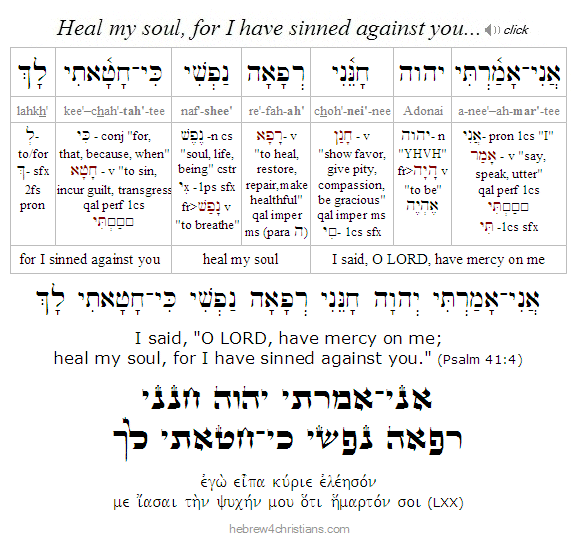 |
Personal Note: I want to express my heartfelt appreciation to each of you who stand with this ministry and encourage me to continue... You are in my prayers, and may it please the LORD our God to draw you ever closer to Him through the grace we have in Yeshua our glorious Savior. Amen.
Parashat Vayeilech:
The Last Days of Moses...

09.03.23 (Elul 17, 5783) In our first Torah reading for this week (i.e., parashat Nitzavim), Moses formally gathered the people of Israel together to ratify their covenant with the LORD. Moses then pled with the people bacharta ba'chayim - to "choose life" by pursuing the path of obedience to the Torah and its commandments. If the Israelites would do so, they would be blessed and prosper as God's chosen nation; but if not, they would be subjected to hard exile, persecution, and the threat of utter destruction.
In our second reading (i.e., parashat Vayeilech), Moses announced his impending death and transferred the leadership of the Jewish nation to Joshua (יְהוֹשֻׁעַ), a type of Messiah who would bring Israel into the promised land. Moses continued his speech but foresaw that despite his appeals, the people would turn away from the covenant, which would cause God's face to turn away: "And hiding I will hide My face (הַסְתֵּר אַסְתִּיר פָּנַי) on that day, because of all the evil they have committed" (Deut. 31:18). The sages note this verse is grammatically unusual because of the double use of the word "hide." If you do not know that God is "hiding," you will not seek for Him; but if you sense within your heart that God is hiding, you are invited to return to Him, as King David said, "When you said to my heart, 'Seek my face;' my heart said to You, 'Your face, LORD, will I seek' (Psalm 27:8).
Hebrew Lesson
Psalm 27:8 reading (click):
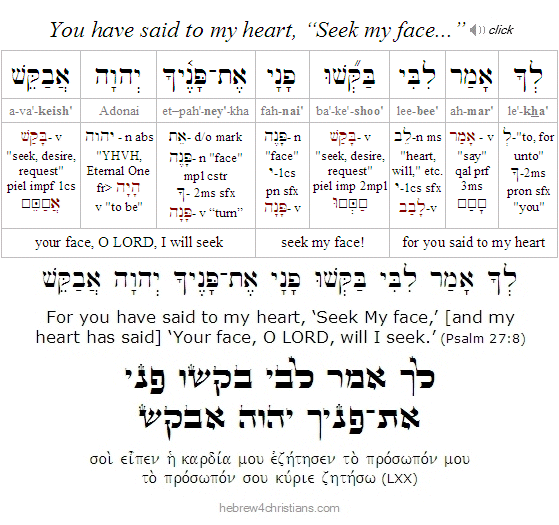 |
In this connection we note that Yeshua often spoke in the form of a parable (παραβολή) to "code" his meaning, to make it accessible only to those who were genuinely willing to make comparisons, to reason analogically, and so on (Isa. 1:18; 1 Cor. 2:13). He used "indirection," allusion, allegory, and "figures of speech" (παροιμία, lit. "[speech] beyond the usual way"), in order to provoke people to explore and ask the hard questions about life... "Truly, you are a God who hides himself, O God of Israel, the Savior" (Isa. 45:15).
"For God so loved the world" that He disguised himself as a bondservant to die in shame upon a cross; "God so loved the world" that he became entirely unesteemed -- "despised and rejected of men, a man of sorrows, acquainted with grief" (Isa. 53:3). Yet even Moses foresaw the stupor of the people in relation to the truth of God (Deut. 29:4). Regarding the "hiding of face," in His sovereign judgment God decreed: "They know not, nor do they discern, for he has smeared their eyes so that they cannot see, and their hearts, so that they cannot understand" (Isa. 44:18). God "gave them over to their stubborn hearts, to follow their own devices" (Psalm 81:12; Rom. 1:24); they went "backward and not forward" (Jer. 7:24). This was not a blindness induced by the "god of this world" as much as it was a darkness induced by the flesh and its apathy toward God. The mind became dull and sleepy because it ceased to believe in the miracle - and to realize that God's truth is always something extraordinary, spectacular, and wonderful...
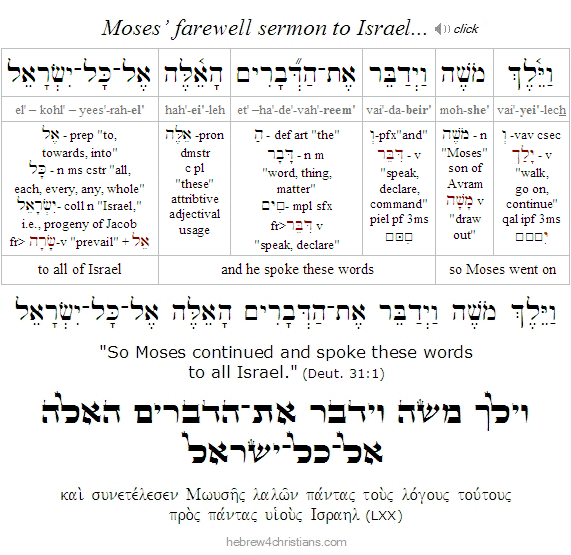 |
Shavuah Tov Podcast:
Parashat Vayeilech..

09.03.23 (Elul 17, 5783) In this "Shavuah Tov" audio broadcast I discuss both the Jewish High Holidays -- and how they relate to us as followers of Yeshua the Messiah -- as well as the weekly Torah portion we will read for Shabbat Shuvah, namely parashat Vayeilech. I hope you will find it helpful. L'Shanah Tovah u'Metukah b'Yeshua Meshicheinu, chaverim! - "to a good and sweet year in our Messiah Yeshua, friends."
Parashat Nitzavim:
Standing before God...
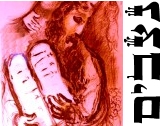
09.03.23 (Elul 17, 5783) For the last Sabbath of the current Jewish (civil) year we have a "double portion" of Torah. Our first Torah portion, parashat Nitzavim (פרשת ניצבים), is always read on the Sabbath before Rosh Hashanah, serving as a prelude to the holiday. The sages found an allusion to Rosh Hashanah in the opening verse: "You are standing today all of you before the LORD your God" (Deut. 29:10), where "today" refers to Rosh Hashanah (i.e., Yom Teruah), when "all of you" shall stand before the LORD your God in judgment. The "last" shofar blast refers to Rosh Hashanah when the dead shall be raised (Rosh Hashanah 16b), whereas the "great" shofar blast is sounded at the end of Yom Kippur, after Israel has received the atonement.
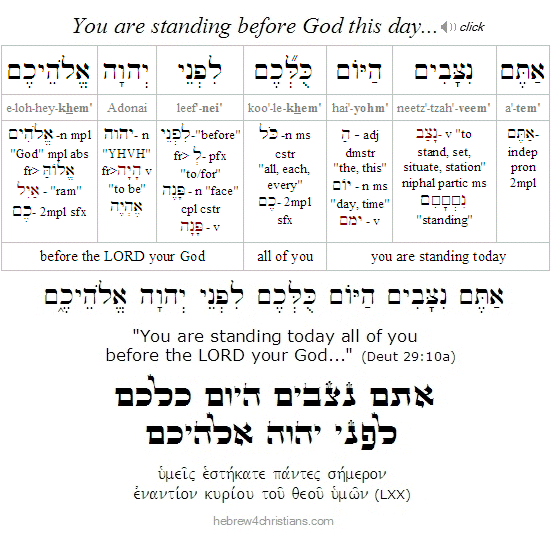 |
According to many of the sages, the time immediately preceding the appearance of the Messiah will be a time of testing (nisayon) in which the world will undergo various forms of tribulation called chevlei Mashiach (חֶבְלֵי הַמָּשִׁיחַ) - the "birth pangs of the Messiah" (Sanhedrin 98a; Ketubot, Bereshit Rabbah 42:4, Matt. 24:8). Some say the birth pangs are to last for 70 years, with the last 7 years being the most intense period of tribulation -- called the "Time of Jacob's Trouble" / עֵת־צָרָה הִיא לְיַעֲקב (Jer. 30:7). The climax of the Great Tribulation is called the great "Day of the LORD" (יוֹם־יהוה הַגָּדוֹל) which represents God's wrath poured out upon a rebellious world system. On this fateful day, the LORD will terribly shake the entire earth (Isa. 2:19) and worldwide catastrophes will occur. "For the great day of their wrath has come, and who can stand?" (Rev. 6:17). The prophet Malachi likewise says: "Surely the day is coming; it will burn like a furnace. All the arrogant and every evildoer will be stubble, and that day that is coming will set them on fire,' says the LORD Almighty. 'Not a root or a branch will be left to them'" (Mal. 4:1). Only after the nations of the world have been judged will the kingdom of God (מַלְכוּת הָאֱלהִים) be established upon the earth. The remnant of Israel will be saved and the 1,000 year reign of King Messiah will then commence (Rev. 20:4).
Shavuah Tov Podcast:
Parashat Nitzavim..
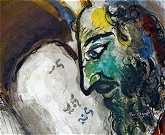
09.03.23 (Elul 17, 5783) Our Torah reading this week, parashat Nitzavim (פרשת ניצבים), is always read on the Shabbat immediately before the solemn holiday of Rosh Hashanah, and therefore it is the last portion read before the new Jewish year (see Exod. 23:16). In many synagogues, the opening and concluding paragraphs of parashat Nitzavim are also read during the Yom Kippur morning service.
Torah portion Nitzavim begins: "You are standing here today, all of you, before the LORD your God (אַתֶּם נִצָּבִים הַיּוֹם כֻּלְּכֶם לִפְנֵי יְהוָה אֱלהֵיכֶם) ... so that you may enter into the sworn covenant of the LORD your God, which the LORD your God is making with you today, that he may establish you today as his people, and that he may be your God, as he promised you, and as he swore to your fathers, to Abraham, to Isaac, and to Jacob" (Deut. 29:10-13). After this Moses went on to review Israel's history and prophetic future -- i.e., the great prophecy of the Diaspora and Return of the people -- and then he solemnly appealed for all those who believed to turn to the LORD for life: "I call heaven and earth to witness against you today, that I have set before you life and death, blessing and curse. Therefore choose life, that you and your offspring may live" (Deut. 30:19).
In addition to an overview of the Torah reading, I discuss the fall holidays of the Torah's calendar, particularly the significance of Rosh Hashanah for followers of Yeshua the Messiah.
Teshuvah of Love...

[ The cross reveals that God is willing to sacrifice everything for your blessing... ]
09.01.23 (Elul 15, 5783) When considering the matter of "teshuvah" (i.e., returning to God), it is vital to understand that God does not love you based on your obedience, though his love for you will lead you to obedience... It is only after accepting that you are accepted despite yourself – despite your inherent inability to please God, despite your incurably sick heart, despite your disobedience, sin, and so on – it is only then that earnest, Spirit-enabled obedience may arise spontaneously within your heart (Rom. 2:4). In that sense "obedience" is like falling in love with someone. It is your love that moves you to act and to express your heart, and were you prevented from doing so, you would undoubtedly grieve over your loss... Therefore the "law of the Spirit of Life in Messiah" is first of all empowered by God's grace and love. We walk by faith, hope, and love – these three. And this explains why the first step of teshuvah is to love God: Ve'ahavta et Adonai (Deut. 6:5). The work of faith is to believe in the miracle that God's love is "for-you-love..." (John 6:29).
If you find yourself operating from a sense of God's conditional acceptance, you will undoubtedly need to repeat the same sins over and over until your heart is finally convinced of its incurably wretched state. You must first be utterly sick of yourself to believe in the miracle of God's deliverance. You have to be "sick of your sickness" and be willing to give it up. Only then will the message of find opportunity to speak...
It needs to be added, however, that genuine repentance implies an understanding that sin is dreaded because it separates us from God's love. Some seem to think Yeshua died on the cross for their sins so that could live their lives without regard for sin, but that is of course a perversion of the truth. Yeshua did not suffer, bleed out, and agonize upon the cross for our sins so that we'd be given license to disregard the God's great cost to remedy our hearts... Indeed, by treating sin lightly we disparage the sacrificial work of Yeshua given on our behalf – we "crucify the Son of God afresh" and thereby deny God's wrath for sin as well as his severe mercy given to those who trust in him (Heb. 6:4-9). There is no Torah apart from the cross, just as there is no cross apart from the Torah...
Hebrew Lesson
Psalm 25:6 reading (click):
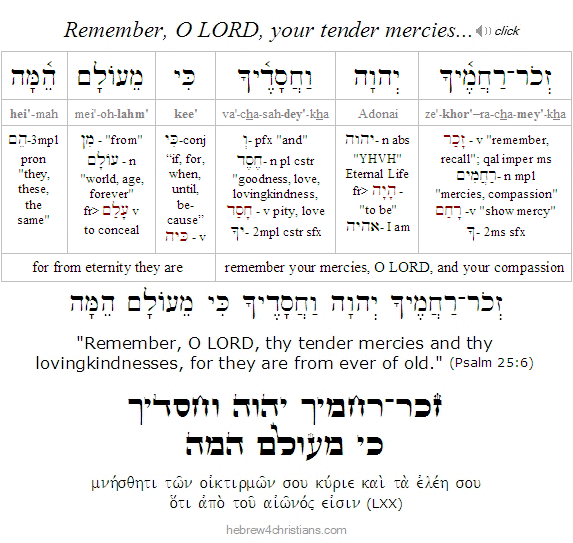 |
"Blessed is the man who walks not in the counsel of the wicked, nor stands in the way of sinners, nor sits in the seat of scoffers, but his delight is in the Torah of the LORD, and in His Torah he meditates day and night" (Psalm 1:1-2). Again, it is a severe mercy, a weighty grace, that is bestowed to us, friends...
The Gravity of Repentance...
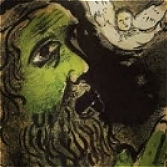
[ "Repent one day before you die, yes... but does a man know what day his end will come?" ]
09.01.23 (Elul 15, 5783) In the Gospel of Luke we read that some people once came to Yeshua to share the terrible news that Pontius Pilate had murdered several Jews from Galilee as they were offering sacrifices at the Temple (Luke 13:1). Apparently Pilate even mingled the blood of these Galileans with their offerings! Horrible. Dreadful. How could this have happened? Why would God allow such a thing?
We are unsure why these people shared this awful news with Yeshua. Were they testing him? Perhaps they hoped he would openly identify with the Zealots who sought to overthrow the Romans, or perhaps they wanted him to say that the Galileans deserved retribution for some sort of wickedness -- or perhaps they just shared out of morbid concern -- but regardless of their motive, Yeshua replied by asking them a question: "Do you think these Galileans were worse sinners than all the other Galileans, because they suffered these things?" And then he added: "I tell you, no; but unless you repent you will all likewise perish" (Luke 13:2-3). Now that was unexpected. Why did he say that the same sort of fate would befall them? Yet to reiterate his point, Yeshua recalled the sudden death of several people when the Tower of Siloam fell: "Those eighteen who were killed when the tower in Siloam fell on them, do you think they were worse offenders than all the others who live in Jerusalem? I tell you, no; but unless you repent you will all likewise perish" (Luke 13:4-5). There's no mention of the reaction of the people when Yeshua said this, but it was likely one of shock, anger, and fear.
What was Yeshua trying to teach by his response to these tragedies? Was he being cruel to point out that unless people repent, they would suffer tragedy in their lives? Well first it is likely that he was countering the assumptions behind the thinking of his listeners, namely, the idea that unexpected death happens only to people who are notoriously bad and therefore deserve judgment from heaven. On the contrary, trouble often befalls the righteous, while worldly success and comforts often are gained by the wicked. Yeshua therefore rejects simplistic answers as to why death happens, and he instead consigns tragedies, suffering, and trouble to be an inescapable part of life in a broken and fallen world. Death is the inheritance of all the children of Adam, and humanity is under the divine curse until it would be removed by the atonement of the Yeshua upon the altar of the cross (Gal. 3:13). If there is a deeper reason as to why particular tragedies occur, we are not privy to such information. Yeshua, however, warns us from thinking that some people deserve judgment more than others, but on the contrary, that all people are sinners in need of salvation (Rom. 3:23).
The lethal consequence of the fall of Adam extends beyond acts of human sinfulness, to natural disasters and matters of sickness, disability, and physical death, however. For example, when the disciples encountered a man who had been born blind they asked Yeshua: "Rabbi, why was this man born blind? Was it because of his own sins or his parents' sins?" Yeshua then answered: "It was not that this man sinned, or his parents, but that the works of God might be manifest in him" (John 9:1-3). Though we naturally assume that there must be a reason for whatever happens, we are not given explicit explanations, and therefore we should be cautious when making inferences. It is a matter of trust that God will bring about a wonderful end for us -- even if we presently may experience pain, sorrow, and various kinds of suffering in our lives. That's part of the consummation of our redemption, after all. However, it is written: "We must through much tribulation enter into the kingdom of God" (Acts 14:22) and "Unless a grain of wheat falls into the earth and dies, it remains alone; but if it dies, it bears much fruit" (John 12:24). We are both redeemed people but we live within fallenness...
Sadly people often die with little warning and for no clearly identified reason. Life is precarious, fragile, and poignant. Yeshua does not defend God's governance of the universe; he knows His heavenly Father is loving, just, and righteous in all his ways. He groans over our suffering and indeed tastes death for every one. He was born to die. "My God, my God, why have you forsaken me?" was his cry on the cross, in the hour of his abandonment and utmost grief. Yeshua entered in the depths of our sin and embraced it as his concern and passion to remedy on our behalf. He was alone in the dark cloud to intecede for us...
In light of the unpredictable perils of life, then, Yeshua wants all people to understand their great need for teshuvah, or repentance. This was the burden of his ministry to us, the very reason he came. And indeed teshuvah is first word of his proclamation: "The time is fulfilled, and the kingdom of God is at hand. Repent, and believe in the gospel" (Mark 1:15). Yeshua wants everyone to know their need for deliverance and his power to save them from death...
The central problem for human beings - both the so-called good as well as the bad - is that of spiritual death, that is, the destruction of one's soul. The danger is real for all of us. Each of us may be unprepared for sudden death, and therefore it is vital to turn to God for life while we have the opportunity. We must be wary of a false sense of security; we must understand our radical need for healing and turn to God for salvation. Time is running out. Our days are numbered. We must sincerely repent lest we perish in uncertainty and darkness of heart...
But this is not all. Yeshua continued his teaching about the danger of perishing without repenting by giving the "parable of the fig tree" (Luke 13:6-9). A certain man had a fig tree in his vineyard that did not bear fruit. When he decided to cut the tree down, his gardener intervened: "Sir, give it one more chance; leave it another year, and I'll give it special attention and plenty of fertilizer. Then if it bears fruit next year, well and good; but if not, you can cut it down." Among other things this parable teaches that a tree that is fruitless will eventually be destroyed, echoing John the Baptist's warning to turn to the Savior for life: "Even now the ax of God's judgment is poised, ready to sever the roots of the trees. Yes, every tree that does not produce good fruit will be chopped down and thrown into the fire!" (Matt. 3:10). The fruit here is that of teshuvah, or repentance (Luke 3:8). The "fruits worthy of repentance" are those derived from heartfelt trust in God's salvation, resulting in a radical change of direction, an abiding abhorrence over personal sin, and an earnest turning to God to escape from the wrath to come - the wrath that is ready to break forth in fiery judgment upon the earth. True repentance is a change of mind (μετάνοια), "taking down high thoughts and bringing them into obedience to Christ" (2 Cor. 10:5). The parable teaches that a life devoid of teshuvah, and in particular a soul devoid of faith in Yeshua as the Savior and deliverer of the soul, will be unprepared for death. The gardener is patient and does everything he can to rescue the tree, but if the tree continues to be fruitless, it will be removed suddenly and irrevocably. The point of the parable is a great question. Will fruit emerge in time before the tree would be felled in judgment? How much time remains for the tree before its day of reckoning comes?
Why does God want us to face the truth about death? Why does Moses ask God to teach us to "number of our days?" (Psalm 90:12). Why does David pray: "LORD, make me to know mine end, and the measure of my days, what it is; that I may know how frail I am" (Psalm 39:4)? The reason is that by nature people deny the reality of death - they hide their eyes from it, ignore it, and pretend it's not there - so they can continue to live under the illusion that they are in control of their lives, that they are the center, that they are immortal little "gods." Death threatens the ego and humbles us to confess the truth about life, namely that we are not in control, that we cannot choose to be immortals, that we do not have power to exist in ourselves, and therefore we need life from a different source - spiritual life - wherein we receive a new identity and a new being found in relation to God.
So in light of all this, what can we learn about repentance? Far more than moral reformation or "self-improvement," the word teshuvah means turning to God in our brokenness, regretting the sin of our life, and fundamentally changing the way we think. Most of all it means trusting in God, believing in the miracle of resurrection life, and relying upon his promises despite the transience, jeopardy, and uncertainty of our lives in this world. Repentance is the confession of our fragility and of our need for God to carry us through the darkness into the presence of his glorious light; it means finding faith to be healed from the sickness of spiritual death and to exist as a new creation for God's glory. It believes that one day we will be home in the house of God's unending love... Repentance is a heart that won't let go of God's love.
Hebrew Lesson
Psalm 39:4 Hebrew reading (click):
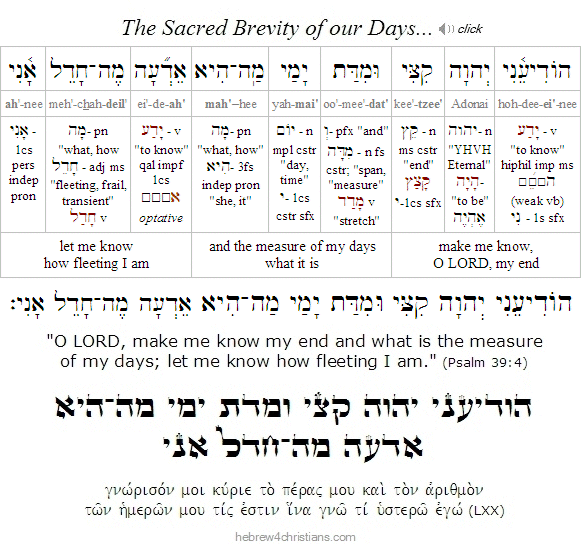 |
Thoughts on the parashah:
Curses of the Law...
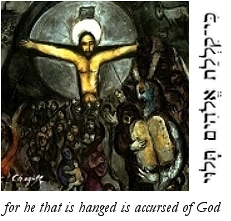
09.01.23 (Elul 15, 5783) Our Torah portion this week, parashat Ki Tavo, includes Moses' seemingly endless description of terrible curses that would befall the Jewish people if they disobeyed the terms of the Sinai covenant (Deut. 28:15-68). In Jewish tradition this litany of curses is called the tochechah (תוֹכֵחָה), a word that means "rebuke" or "reproof." Reading the tochechah is difficult and painful, especially in light of all the persecution and tragedies that have befallen the Jewish people over the millennia...
There are actually two main tochechot ("rebukes") given to Israel in the Torah. The first is in found at the end of the Book of Leviticus (Lev. 26:14-46), and the second (and longer one) is found in this week's Torah portion (Deut. 28:15-68). The rebuke in Leviticus ends with some measure of hope: "Yet for all that, when they are in the land of their enemies, I will not spurn them, neither will I abhor them so as to destroy them utterly and break my covenant with them, for I am the LORD their God" (Lev. 26:44), while the rebuke in Ki Tavo intensifies and intensifies - without any sense of reprieve. Indeed this longer rebuke contains no less than 98 curses - exactly twice as many as the 49 curses listed in Leviticus. According to the sages, the earlier rebuke given in Leviticus foretold the destruction of the First Temple and the Babylonian exile, whereas the later rebuke given in Deuteronomy foretold the destruction of the Second Temple and the Roman exile (which continues to this day in the Diaspora). Ezra the Scribe decided that the curses in Leviticus were to be read just before Shavuot (i.e., the time of the giving of the Torah), while the curses in Deuteronomy were to be read just before Rosh Hashanah, "so that the year and its curses can conclude" (Megillah 31b).
The New Testament teaches that we can only escape the curses listed in the Sinai covenant by means of Yeshua, who died on the cross as a sacrificial substitute for us, the very "Lamb of God" who takes away the sin of the world (John 1:29). As it is written, "God made the One who did not know sin to be sin for us, so that we would become the righteousness of God (δικαιοσύνη θεοῦ) in Him" (2 Cor. 5:21).
It is the righteousness of God (דְקַת אֱלהִים) that saves us, after all, and not any righteousness we may merit (Titus 3:5-7). "Salvation is of the LORD." And just as the death of a spouse releases a married person from the terms of their marriage contract, so the death of the Messiah frees us from the marriage contract made at Sinai (Rom. 7:1-4). Consequently our relationship with law itself has radically changed. We are "not under the law, but under grace" - οὐ ἐστε ὑπὸ νόμον ἀλλ᾽ ὑπὸ χάριν (Rom. 6:14). Indeed, we are "released from the law, having died to that which held us captive, so that we serve in the new way of the Spirit and not in the old way of the written code (Rom. 7:6). "For Messiah is the end of the law (τέλος νόμου) for righteousness to everyone who trusts in Him" (Rom. 10:4).
The Messiah delivered (ἐξαγοράζω) us from the curse (קְלָלָה) pronounced in the Torah by becoming cursed on our behalf; as it is written, 'Everyone who hangs from a stake comes under a curse' (Gal. 3:13; Deut. 21:23). Therefore we have a new and better covenant with Yeshua (Heb. 8:6), just as we have a new and better altar than that provided by the older sacrificial system of the Temple (Heb. 13:10).
People are still free to attempt to justify themselves according to the "everlasting" terms of the Sinai Covenant, but then they are liable to the provisions of punishment emphatically stated in that covenant (i.e., the curses listed in Deut. 28:15-68). The new covenant, on the other hand, operates according to the "law of the Spirit of Life" by the gracious agency of the Holy Spirit (Rom. 8:2), enabling us to obey the inner meaning of the Torah by the power and glory of God. We are no longer under the "law of sin and death."
It is the Messiah in you that makes all the difference (Col. 1:27). Only those who love the Messiah and His salvation can be truly Torah observant, and indeed, what value is there in the law apart from the Lawgiver Himself, the Messiah who is our rightful King?
Therefore James the Righteous quoted from our Torah portion (Deut. 27:26) and wrote that "whoever keeps the whole law but fails in one point has become guilty for violating it all" (James 2:20). The Apostle Paul likewise quoted this verse when he wrote: "For all who rely on doing the works of the law are under a curse, because it is written, "Cursed is everyone who does not keep on doing everything written in the book of the law" (Gal. 3:10, see also Rom. 4:15).
For Messianic Jews (and Christians), "Torah" now centers on Yeshua, who is the Word of God and the Voice that spoke from the midst of the cloud at Sinai... He is the High Priest of the New Covenant of God (Heb. 7:12), and we are Torah observant when we obey His voice by receiving His love and deliverance. Repent and believe the good news (Mark 1:15)... The "good" news (εὐαγγέλιον) can only be understood in light of the "bad news," namely, that we are the walking dead apart from a divine intervention so radical that it took the death of God to bring about its reality... We have all been bitten by the serpent: "The sting of death is sin, and the power of sin is the law, but thanks be to God, who gives us the victory through our Lord Yeshua the Messiah" (1 Cor. 15:56-57). The Holy Spirit will never lead genuine followers of Yeshua to violate the inner intent of the law but will uphold the heart of the Torah. Therefore Yeshua said, "If you love me, keep My commandments..." (John 14:15, 21).
The idea of tochechah ("rebuke") is not simply something just for ethnic Israel, of course, since the New Testament likewise warns us that God will punish those who likewise walk "carelessly" (i.e., keri: קְרִי) with Him. Have you forgotten the exhortation that addresses you as God's children? "My son, do not regard lightly (ὀλιγώρει) the discipline of the Lord, nor be weary by his reproof (תּוֹכֵחָה). For the Lord disciplines the one he loves, and reproves every child whom he receives" (Heb. 12:5-6; Prov. 3:11-12).
Likewise, the Lord charged the assembly at Ephesus that they had let go of their first love. Yeshua therefore urged them: "Remember from what high state you have fallen and repent! Do the deeds (ἔργα) you did at the first; if not, I will come to you and remove your menorah from its place – unless you repent" (Rev. 2:4-5). Because God is never indifferent toward those who are trusting in His salvation, he will discipline and correct us to keep close to Him. He will afflict us with the "troubles of love." "This too is for good," expressing the idea that all things – including various troubles in our lives – ultimately help us return to the Lord for healing and life (Rom. 8:28).
Therefore discipline and correction is directed toward exercising faith in Him. "For whatever is not of faith is sin" (Rom. 14:23; Heb. 11:6). "This is the work of God, that you believe in him whom he has sent" (John 6:29). The question is not whether or not we have kept certain ordinances, but whether or not Yeshua truly lives within our heart, i.e., whether we submit to his reign - his Torah - in our lives. Whenever we revert back to the idea of "law" in the sense of self-justification or self-empowerment we will re-experience the "law of sin and death." When we move "past" the law of death by means of the cross, we experience resurrection power and life... This is the "law of the Spirit of Life" given in Yeshua...
That is part of the inner meaning of the verse: "Every sickness also and every affliction that is not recorded in the book of this law, the LORD will bring upon you, until you are destroyed" (Deut. 28:61). The end is the destruction of the "principle of the flesh." As Yeshua said, "Unless a grain of wheat falls into the earth and dies, it remains alone; but if it dies, it bears much fruit" (John 12:24).
Hebrew Lesson
Isaiah 53:5 reading (click):
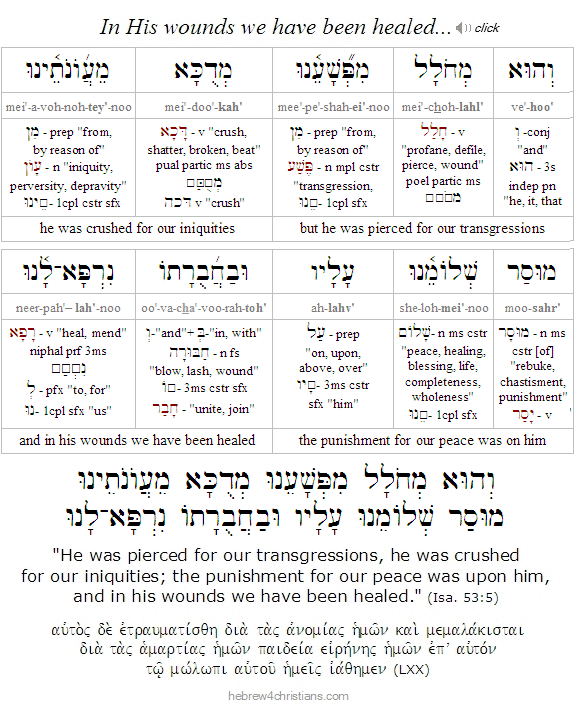 |
<< Return
|













